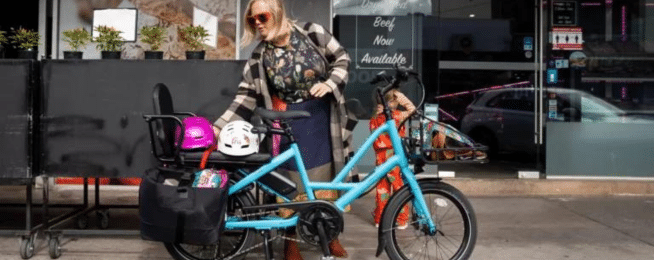By replacing many of the trips people would otherwise take by car, e-bikes have massive capacity to tackle transport-related carbon emissions and governments around the world are starting to cotton on to their potential.
Last week, the Tasmanian Government joined them.
There are details still to be fleshed out, but as part of its new Climate Change Action Plan the government has committed $1.2 million in incentives for people buying e-bikes, e-scooters and e-vehicles.
While we don't yet know how much of that $1.2 million will go toward e-bikes specifically or what the grant program will look like, we do know it is an important step in the right direction. Read more here.
The Australian Government has targeted a 43% reduction on 2005 emissions by 2030, but transport emissions are projected to go from our third to our largest source of emissions over that time.
Without a dramatic shift in how we get around, we're likely to fall well short of that target.
An average Victorian car emits 243.8 grams of CO2 per person per kilometre travelled, while a Tesla Model S charged on the state's grid emits 209.1. An e-bike emits just 6.
Indeed, the e-bike may be a secret weapon against climate change, and more and more countries are using financial incentives to help people climb onboard.
In France, that looks like a subsidy of up to €4,000 ($6425) for people who trade in internal combustion engine cars for e-bikes.
In Scotland, that looks like an interest-free loan of up to £6000 ($11,000) for four years for individuals, and up to £30,000 ($56,000) for businesses to buy e-bike fleets.
In the Canadian province of British Columbia, that looks rebates of up to CAD$1400 $1500) on e-bikes priced $2000 ($2200) or more.
While these types of carrots are yet to be dangled down under, e-bikes are surging in popularity. Five times more e-bikes were sold in Australia than electric cars in 2021-22, and sales ballooned from 9000 to 75000 between 2017 and 2022. Subscription service companies offering family cargo bikes continue to grow and play an important part.
More than two million car trips taken in Sydney every day are less than 2km, and in Melbourne, where half of all weekday trips are less than 4.7km, 41% take place in a car. 81% of people in Australia make their daily commute in a private vehicle.
Bicycle Network called for e-bikes to be included in the National Electric Vehicle Strategy released last month, and will continue beating this drum as the government shapes its approach to cleaner transport moving forward.
We must make the Tasmanian example the norm rather than the exception, because rapid climate action is on offer if we do.


